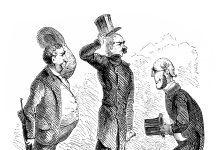Maximilian Buja MD physician-scientist & cardiovascular pathologist, Professor of Pathology and Laboratory Medicine at McGovern Medical School, explores the disruptive changes and unintended consequences within medical education in response to scientific advances and the needs of society
The medical education system based on principles advocated by Flexner and Osler has produced generations of scientifically grounded and clinically skilled physician-scientists whose collective experiences and contributions have served medicine and patients well. Yet sweeping changes launched around the turn of the millennium have constituted a revolution in medical education.
Undergraduate medical education (UME) curricula
A critique is presented of the new undergraduate medical education (UME) curricula in relationship to graduate medical education (GME) and clinical practice. Medical education has changed and will continue to change in response to scientific advances and societal needs.
Challenges & consequences for students and educators
However, enthusiasm for reform needs to be tempered by a more measured approach to avoid unintended consequences. These include challenges for both students and educators.
Approaches to student evaluation also figure into the discussion, including the role of high stakes summative evaluations such as the United States Medical Licensing Examination (USMLE).
Graduate physician-scientists
An argument is made for a shoring up of biomedical science in revised curricula with the beneficiaries being nascent practitioners, developing physician-scientists –and the public.
Unless there is further modification, the new integrated curricula are at risk of producing graduates deficient in the characteristics that have set physicians apart from other healthcare professionals, namely high-level clinical expertise based on a deep grounding in biomedical science and understanding of the pathologic basis of disease.
Medical and societal benefits
Progressing from a novice to master-in-medicine cannot be rushed. The challenges for medical education of the best possible physicians are great but the benefits to medicine and society are enormous.








